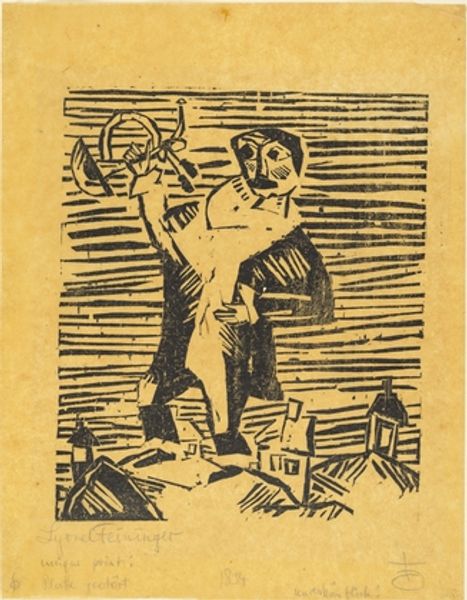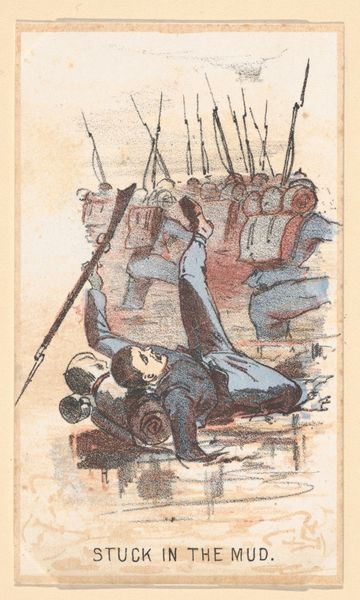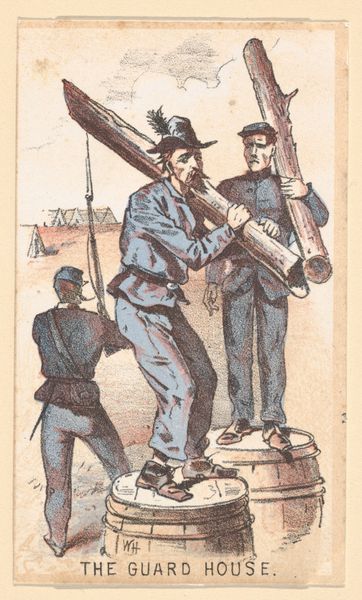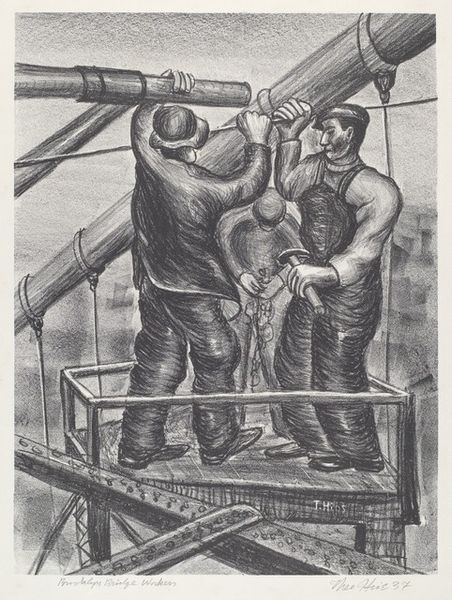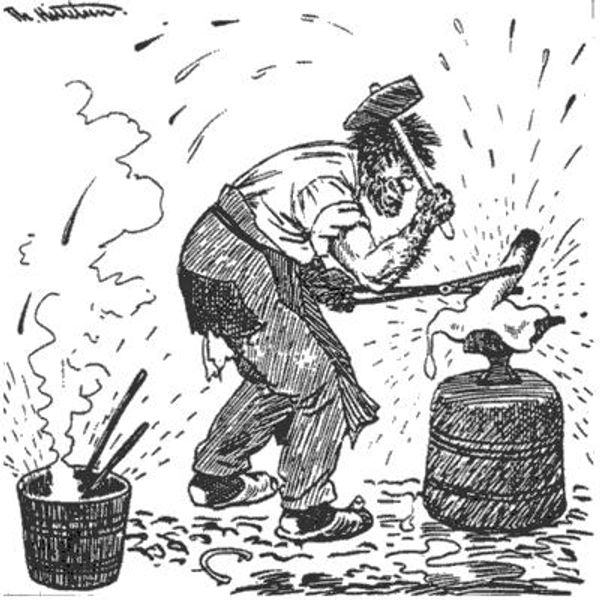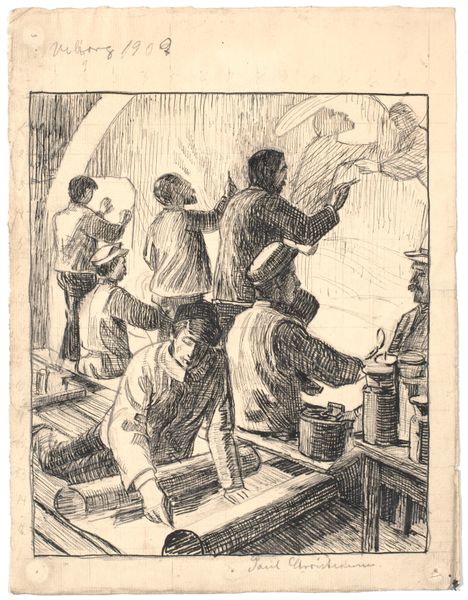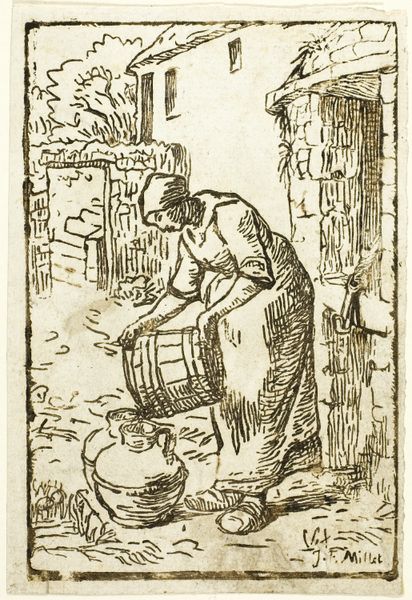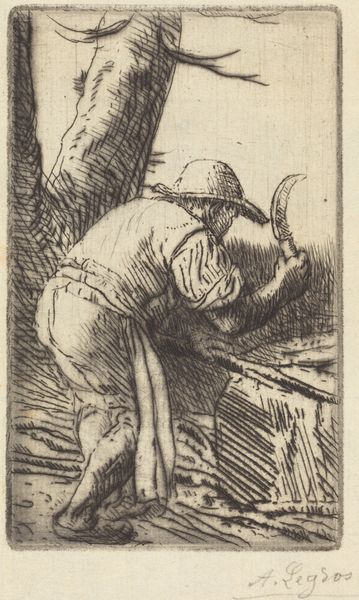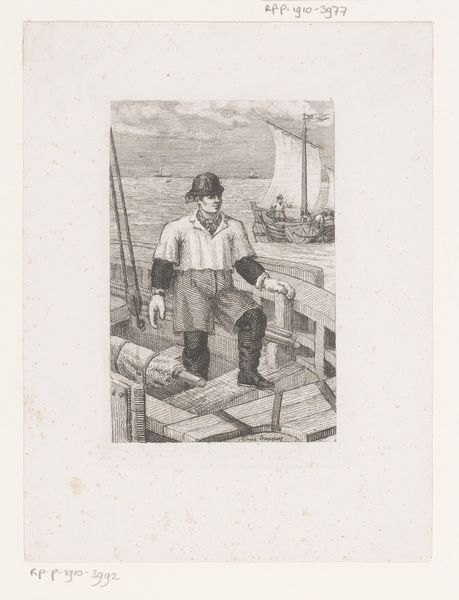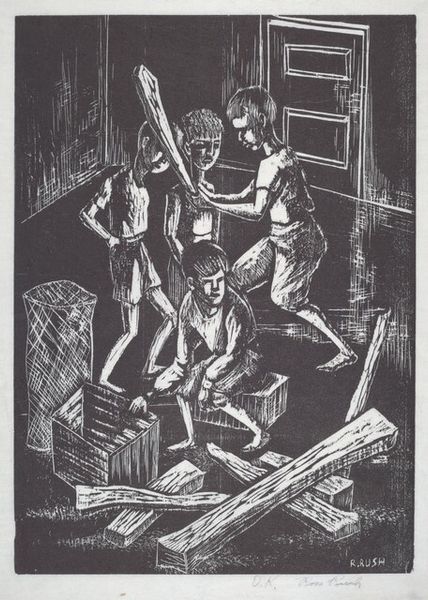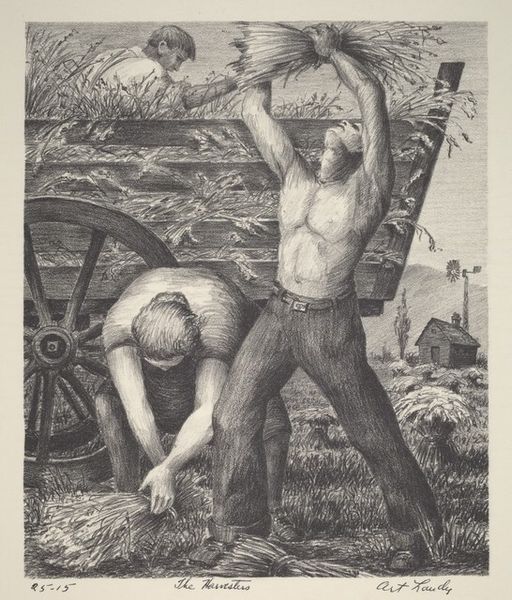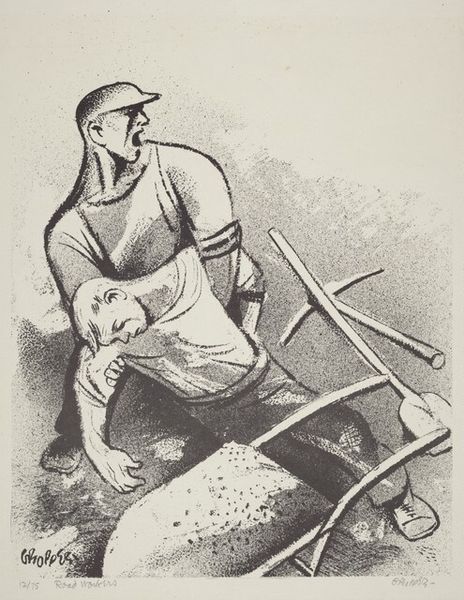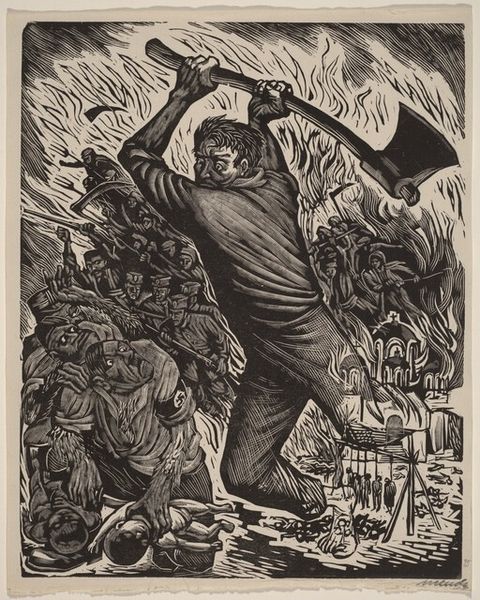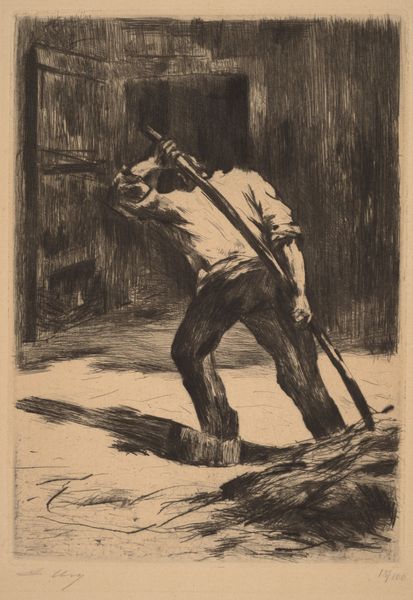
drawing, coloured-pencil, print, pencil
drawing
coloured-pencil
landscape
coloured pencil
pencil
men
history-painting
realism
Dimensions: Sheet: 4 1/8 x 2 3/8 in. (10.4 x 6.1 cm)
Copyright: Public Domain
Editor: Okay, next up we have Winslow Homer's "Life in Camp, Part 2: In the Trenches," a drawing from 1864 made with coloured pencils and pencil. I'm immediately struck by the physicality of the figure. He seems to be straining under a great weight. It almost feels... Biblical, you know? What leaps out at you when you see this, especially knowing its context? Curator: Biblical, eh? I like that. It does have a certain weight, a metaphorical heft. For me, it's the rawness. The exposed back, the suggestion of the earthiness of the labour… It’s not glorifying war. It's showing the sheer effort, the toil involved in building a world while simultaneously tearing one down. And that tilted perspective – that man could be Hercules, or he could be about to collapse. Do you get a sense of him maybe building his own prison? Or helping to build it, anyway. Editor: A prison... interesting. I hadn't thought of it that way. More that he was supporting something larger than himself, even at great cost. But your "prison" idea reframes the whole thing! The work necessary for confinement, instead of purely productive labor. Curator: Right! Because is he toiling for his freedom or digging his grave? We feel that double-edged reality acutely, I think. Do you notice how little of the figure actually faces the viewer? It makes him intensely vulnerable to observe. We’re privy to something private and raw. The sketchiness almost heightens that feeling. As if it were quickly jotted down so no one could find him recording such a dangerous truth. Editor: So it becomes less about a heroic effort, and more about... bearing witness? That fragility wasn’t visible to me initially. I think that the title influenced my assumptions, by placing the labor firmly 'in the trenches' during war. Thank you, your point is really enriching how I interpret the art's value. Curator: It works on so many levels, doesn't it? Even Homer might not have been conscious of all of them at the time, perhaps… I think art has a way of exceeding our own understanding, anyway.
Comments
No comments
Be the first to comment and join the conversation on the ultimate creative platform.
